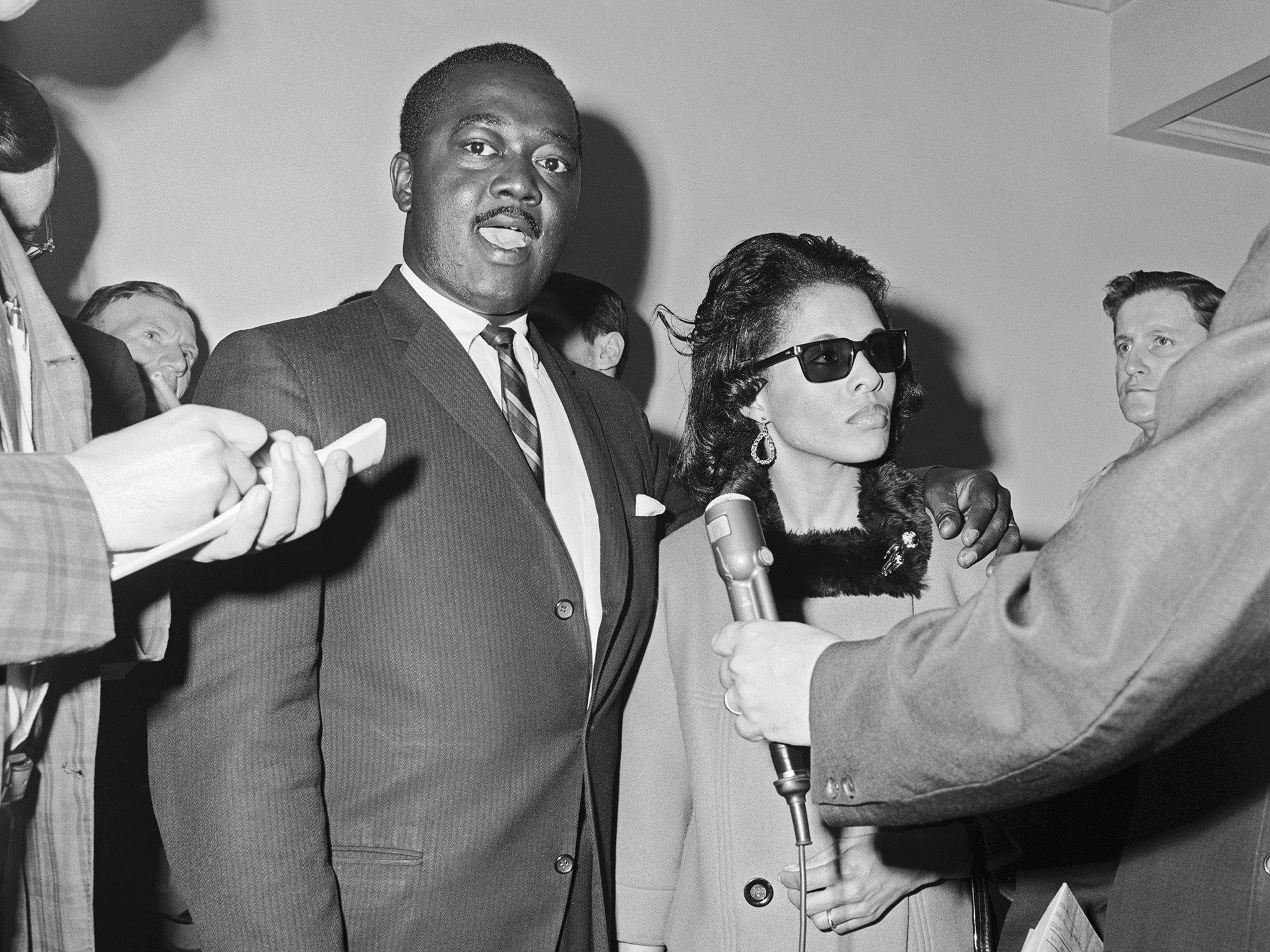Biden pardons Black former Secret Service agent who guarded JFK 58 years after bribery case
Abraham Bolden is a former Secret Service agent who was the first Black agent to serve on a presidential protective detail

Your support helps us to tell the story
From reproductive rights to climate change to Big Tech, The Independent is on the ground when the story is developing. Whether it's investigating the financials of Elon Musk's pro-Trump PAC or producing our latest documentary, 'The A Word', which shines a light on the American women fighting for reproductive rights, we know how important it is to parse out the facts from the messaging.
At such a critical moment in US history, we need reporters on the ground. Your donation allows us to keep sending journalists to speak to both sides of the story.
The Independent is trusted by Americans across the entire political spectrum. And unlike many other quality news outlets, we choose not to lock Americans out of our reporting and analysis with paywalls. We believe quality journalism should be available to everyone, paid for by those who can afford it.
Your support makes all the difference.An Illinois man who President John F Kennedy chose as the first Black Secret Service agent to serve on a presidential security detail became the first recipient of a presidential pardon from Joe Biden on Tuesday as the White House unveiled a series of actions meant to further Mr Biden’s criminal justice reform agenda.
Mr Biden issued the first pardon of his administration to former Special Agent Abraham Bolden, who had spent 39 months in prison in the 1960s after a jury convicted him of soliciting a bribe in exchange for providing a Secret Service investigative file to a counterfeiter who he’d been investigating.
Prosecutors brought the charges against Mr Bolden, who Kennedy had described as “the Jackie Robinson of the Secret Service” after elevating him to the agency’s Presidential Protective Division in 1961, after he had told another agent he intended to tell the Warren Commission — the investigative body headed by Chief Justice Earl Warren investigating the Kennedy assassination — about misconduct by agents on the president’s protective detail.
After his first trial ended in a hung jury, a second jury convicted him based on the testimony of a counterfeiter who later said he perjured himself at the request of prosecutors. Mr Bolden appealed, but the appeal was denied.
The White House noted that “key witnesses” against Mr Bolden had “admitted to lying at the prosecutor’s request” and that he’d “steadfastly maintained his innocence” and continued to argue he was a victim of retaliatory prosecution “for exposing unprofessional and racist behaviour” in the Secret Service.
The White House also announced that pardons had been granted to two other individuals — Betty Jo Bogans of Texas and Dexter Jackson of Georgia — both of whom had been convicted and served sentences for non-violent drug crimes. He also commuted the sentences of 75 others, all of whom had also been convicted for non-violent drug-related crimes.
In a statement, Mr Biden said he was issuing the pardons to mark Second Chance Month, which was established in 2017 by the non-profit group Prison Fellowship to highlight the need to improve treatment of people who have completed sentences after criminal convictions, including reducing barriers to employment and improving access to housing and social services.
“America is a nation of laws and second chances, redemption, and rehabilitation. Elected officials on both sides of the aisle, faith leaders, civil rights advocates, and law enforcement leaders agree that our criminal justice system can and should reflect these core values that enable safer and stronger communities,” he said, adding that he had issued the three pardons because the recipients had “demonstrated their commitment to rehabilitation and are striving every day to give back and contribute to their communities”
Additionally, the White House announced a new partnership between the Justice Department and Labour Department that will “job skills training and individualized employment and reentry plans” for people currently serving sentences in federal prison facilities who are nearing their release dates.
The Labor Department will also roll out $140m in grants to help provide job opportunities to formerly incarcerated individuals, and the Small Business Administration will publish proposed regulations to “remove barriers to federal employment for formerly incarcerated individuals” by prohibiting more employers — including the federal government — from asking job applicants about criminal convictions until after conditional offers of employment have been made.

Join our commenting forum
Join thought-provoking conversations, follow other Independent readers and see their replies
Comments